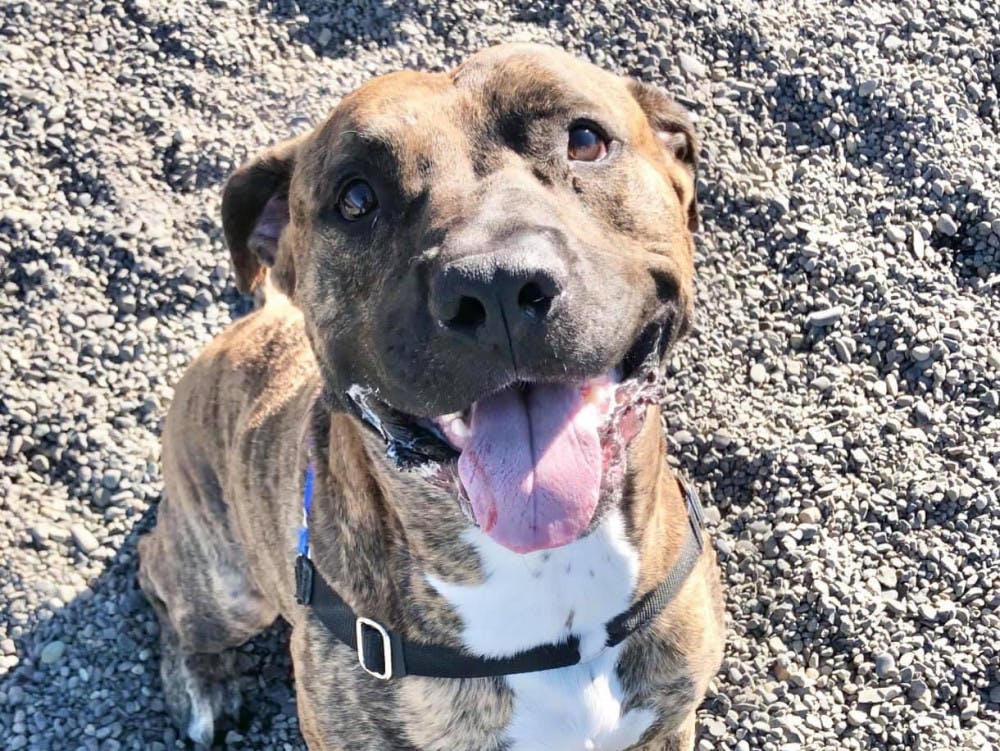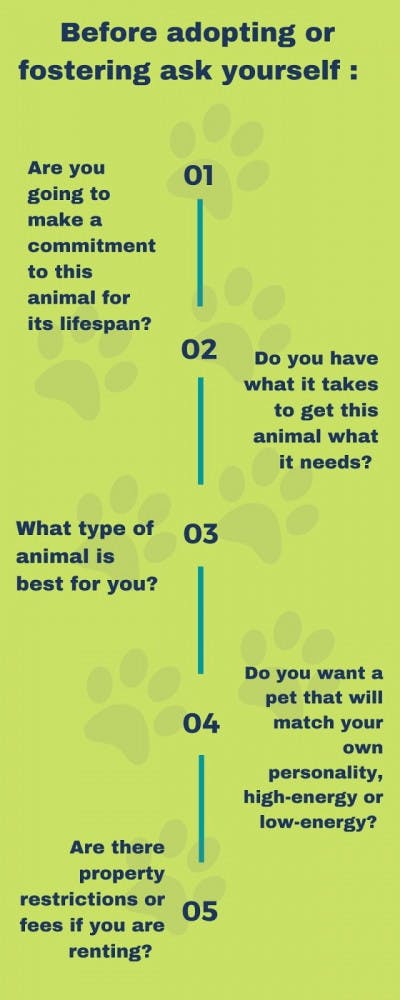Pets can improve mental health during unprecedented times

By Olivia Hicks
As Washington rolls back into phase one of Gov. Inslee’s “Safe Start” plan and winter approaches, people will be in social isolation yet again. Pets can provide necessary companionship during the pandemic.
Western Washington University has recognized the stress-relief benefits from animals in previous years by bringing dogs, cats and bunnies to the Western Libraries during finals week. But what about during a pandemic?
Helen Brooks, senior lecturer in the Mental Health Research Group at the University of Manchester, studies the link between pet companionship and mental health.
“Generally speaking, the systematic review [of companion animal research] showed that people enjoyed keeping their animals and believed that they gained psychological benefit from these relationships,” Brooks said. “These included pets providing emotional support, helping their owners to manage symptoms when they arose, such as distracting people from hearing voices or suicidal thoughts, and providing their owners with a sense of purpose and meaning in life.”
Additionally, Brooks said pets — dogs in particular — encourage routine, exercise and developing new relationships with people.
In Brooks’ study of the positive mental health benefits pets can provide for people diagnosed with long-term mental health conditions, 60% of participants attributed the relationship with their pet as central to managing their mental wellbeing. Other factors considered included gardening, music, a support worker and a community psychiatric nurse. Based on these results, Brooks calls for more widespread acceptance of pets as a therapeutic benefit.
During unpredictable and isolated times, Brooks said she can only speak from a personal experience on the benefit of pets during the pandemic.
“My dogs have been a great source of company and comfort during the pandemic, especially during periods of enforced social isolation,” Brooks said. “They are also a great source of humor and an important connection to the outside world.”
While dogs promote exercise — which improves mental health — other pets may be more suitable for college students.
Grant Sheridan, a third-year Western student, recently adopted a 9-year-old cat named Cecilia from the Whatcom Humane Society. Sheridan decided to adopt the cat to benefit his girlfriend’s mental health.
“We decided together that getting an animal might be beneficial to her mental health,” Sheridan said. “For me, I like cats, so it’s nice to own one and I want to visually see my girlfriend get better. So far, it has been working.”
Sheridan said an independent cat was the best option, because he works during the day and does not have the time for a high-energy pet.
“It's like living with an aloof roommate,” Sheridan said. “That's all I could really ask for. I'm 20, I'm not here to raise a baby. I'm here to give a cat a much better life than she had previously and take care of her needs, as well as my own.”
Cats are a great fit for college students, but adoption is not always the best option, said Tish O’Keefe, president of the Alternative Humane Society. There has been a high demand for rescue animals since the beginning of COVID-19, but O’Keefe said she is unsure if the trend will last.
“Our biggest worry is that if things get back to normal, that [adopted] animal is going to need a new home again,” O’Keefe said. “So, we're also encouraging other ways to help and have animals around.”
Other options include volunteering or fostering pets. When fostering, the Alternative Humane Society covers all expenses. The time-frame varies from days or weeks to sometimes months. While forming a long-term companionship with a pet may be desirable, college students must also be realistic about the commitment of adopting a pet that may live up to 20 years of age, O’Keefe said.
O’Keefe advises people wanting to adopt to consider these questions before adopting:
- Are you going to make a commitment to this animal for its lifespan?
- Do you have what it takes to get this animal what it needs?
- What type of animal is best for you?
- Do you want a pet that will match your own personality, high-energy or low-energy?
- Are there property restrictions or fees if you are renting?
Often, what kind of animal is the best option is answered by cost analysis. Upfront adoption fees at the Alternative Humane Society range from $100 to $160 for cats and kittens, and $180 to $300 for senior, adult and young dogs. Dogs are typically more expensive in the long run with veterinary visits, food and other necessities, O’Keefe said.
“You're trying to give these cats or kittens who have been rescued a better life than a shelter can provide,” Sheridan said. “So if you're unable to do that, I highly recommend not adopting until you can safely do so.”






